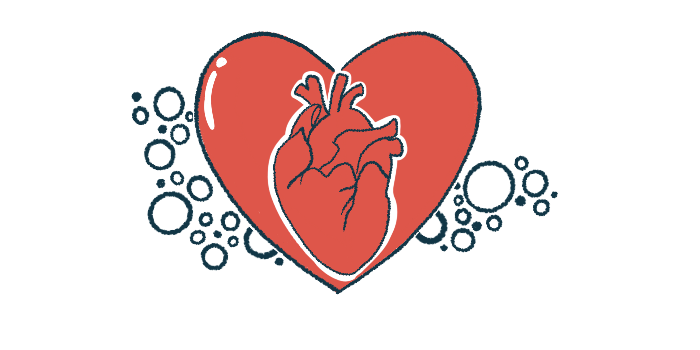NSAID dosing tied to increased risk of cardiovascular disease in AS
Treatment with high doses linked to heart attack, stroke in patients: Study
Written by |

Treatment with high doses of nonsteroidal anti-inflammatory drugs (NSAIDs) is associated with an increased risk of cardiovascular disease among adults with ankylosing spondylitis (AS), according to a Korean real-world study into NSAID dosing.
Specifically, the risk was significantly higher for conditions such as heart attack, stroke, and congestive heart failure among high-dose NSAID users as compared with patients given a low dose of these medications.
“We should be aware of the difference in cardiovascular risk between NSAID doses and should consider dose reduction of NSAIDs whenever disease activity is controlled in patients with AS,” the researchers wrote, noting that such medicines typically are the first-line treatment for this form of arthritis.
The study, “Risk of cardiovascular disease with high-dose versus low-dose use of non-steroidal anti-inflammatory drugs in ankylosing spondylitis,” was published in the Annals of the Rheumatic Diseases.
10% greater risk of cardiovascular disease found with high NSAID dosing
NSAIDs — medications such as ibuprofen, naproxen, or diclofenac — often are used as a primary treatment for AS, a type of arthritis that mainly affects the joints of the spine. The hallmark sign of the condition is inflammation of the sacroiliac joints, where the base of the spine meets the pelvis.
These medications can ease pain and reduce swelling in the joints, and can be used either on demand for episodes of pain or continuously as a prophylaxis, or to prevent pain.
In patients with high inflammatory activity, continuous NSAID treatment can delay AS progression compared with on-demand NSAID dosing. The use of these drugs, however, can lead to serious side effects, including stomach ulcers, as well as cardiovascular diseases, such as heart attack and stroke. Thus, cardiovascular risk management is essential for patients treated with NSAIDs.
Now, a team of scientists in the Republic of Korea sought to evaluate the impact of NSAID dosing on the risk of cardiovascular disease in the real world. To that end, the scientists collected data on newly diagnosed patients with AS using the Korean National Health Insurance database. The team investigated the incidence of cardiovascular disease, which included heart attack, stroke, and congestive heart failure, over at least six months of follow-up.
A total of 19,775 patients, with a mean age of 36.1 years, and among whom 14,836 (75%) were men, were included in the study. Some patients had co-existing conditions, such as high blood pressure (13.7%), diabetes (7.8%), and high levels of fats in the blood called hyperlipidemia (8.1%).
Nearly all patients (99.7%) were treated with NSAIDs, and almost 1 in 3 (altogether 30.2%) also received anti-TNF medications.
The defined daily dose, or DDD, was determined for each NSAID; this was assumed to be the average maintenance dose per day in adults. Then, patients were divided into two groups: those who used high-dose NSAIDs, defined as an NSAID exposure of at least 0.5 DDD, and those on a low dose, or less than 0.5 DDD.
During a median follow-up of 4.7 years, the cases of cardiovascular disease comprised 1,157 heart attacks, 301 strokes, and 613 cases of congestive heart failure
To determine whether higher NSAID dosing was associated with a greater risk of these events, the researchers conducted statistical analyses that took into account factors that may influence the risk of cardiovascular disease. Among such factors were age, sex, socioeconomic status, body fat content, smoking status, TNF inhibitor use, and co-existing conditions.
After adjustments, a high NSAID dose was associated with a 10% greater risk of cardiovascular disease compared with a low dose, based on a total of 1,663 cases. Specifically, increasing doses of NSAIDs were linked with an 8% increased risk of heart attack, a 9% increased risk of stroke, and a 12% increased risk of congestive heart failure.
Higher dose treatment with NSAIDs was associated with a higher risk of [cardiovascular disease], including ischaemic heart disease, stroke and congestive heart failure, relative to lower [doses].
Cardiovascular disease risk was higher among women than men, which “might be explained by a higher risk of stroke associated with NSAID use in women,” the researchers wrote.
Other independent risk factors for cardiovascular disease included older age, lower socioeconomic status, high body fat content (obesity), current smoking, high blood pressure, and high levels of fats.
Overall, a “higher dose treatment with NSAIDs was associated with a higher risk of [cardiovascular disease], including ischaemic heart disease, stroke and congestive heart failure, relative to lower,” the scientists concluded.






